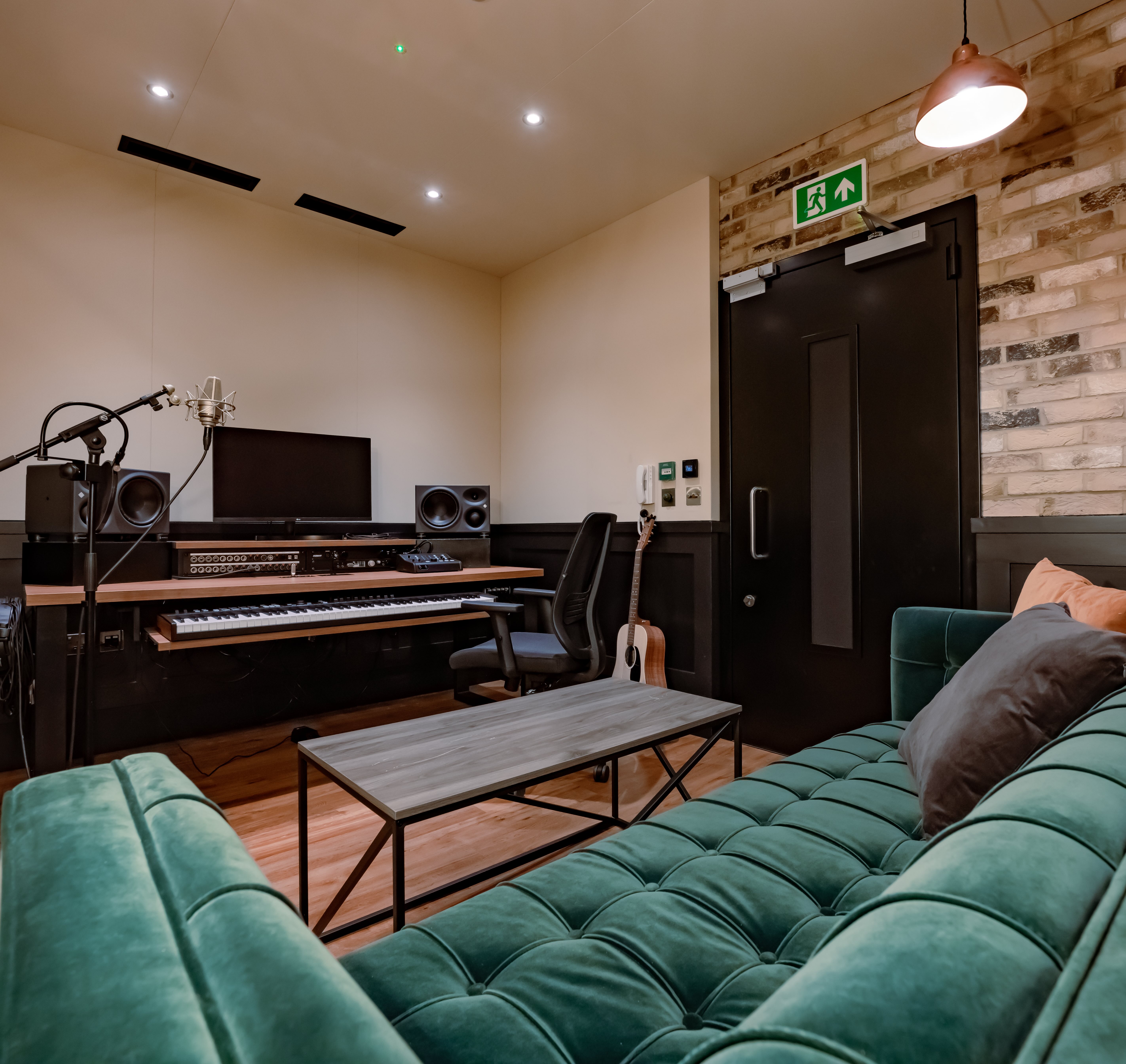How to Get into Music Production: Beginner's Guide to Making Beats
This guide explores the essential tools, skills, and strategies needed to thrive in the music industry, whether you dream of becoming a music producer or simply want to create music for personal satisfaction.
The music industry offers a vast array of opportunities for aspiring music producers. Whether your goal is to work with record companies, produce electronic music, or create your own songs, understanding how to get into music production is the first step. This guide will walk you through the essentials, from mastering technical skills to building a career in music.
Understanding the basics of music production
Music production is the art of transforming musical ideas into polished, recorded music. It encompasses every stage of the process, from initial brainstorming to the final mastered track. To get into music production, it’s crucial to grasp the fundamental stages and concepts that underpin this creative field.
Key stages of music production

- Pre-production – This is the planning phase, where musical ideas are developed, and the direction of the track is determined. Producers collaborate with artists to map out song structures, choose instruments, and decide on the overall vibe. For example, in hip hop, producers might focus on creating a strong beat as the foundation, while in electronic music, sound design might take centre stage. A clear pre-production plan saves time and ensures the project runs smoothly.
- Recording – This stage involves capturing the raw audio for the track. Using tools like microphones, audio interfaces, and digital audio workstations, producers work to record vocals, instruments, or electronic sounds. Recording sessions are often conducted in a professional recording studio to ensure high-quality results. The role of a skilled recording engineer is vital here, as they manage technical aspects like mic placement and sound levels.
- Editing – After recording, the raw tracks are edited to remove errors, align timing, and enhance the overall performance. This step ensures that the individual elements of the track fit together seamlessly. Editing can include cutting out unwanted noise, adjusting pitch, or refining transitions between sections.
- Mixing and mastering – These final stages are where the track comes to life. Mixing involves balancing individual elements, such as vocals, drums, and instruments, to create a cohesive sound. Effects like reverb, delay, and compression are applied to enhance the track’s depth and clarity. Mastering ensures the finished product sounds polished and consistent across all playback systems. It’s a specialised skill often handled by a mastering engineer.
The importance of musical knowledge
Having a deep understanding of music theory is an asset for any music producer. Knowledge of scales, chords, and rhythms allows you to compose and arrange tracks more effectively. Learning music theory doesn’t have to be daunting – there are plenty of resources and online courses available to simplify the process.Understanding different genres is also important. Each genre has unique characteristics that influence production techniques. For instance, electronic music often relies heavily on synthesisers and MIDI controllers, while rock might prioritise live instrument recording.By exploring various styles, you can expand your musical knowledge and versatility.
The evolving role of a music producer
Historically, record producers worked behind the scenes, overseeing the production process and collaborating with artists. Today, the role has evolved, with many music producers working independently or creating their own music.Advances in technology have made it possible for aspiring producers to set up small studios at home and take on multiple roles, including sound design, mixing, and mastering.Understanding the basics of music production is the foundation for a successful career in the field. Whether you’re producing music for personal enjoyment or aiming to work with major record companies, mastering these fundamentals is key to achieving your goals.
Essential music production software and tools
Modern music production relies heavily on technology, and having the right tools can make a significant difference in your workflow and the quality of your music.Whether you’re working from a professional recording studio or a small studio at home, investing in essential music production tools and software is a crucial step.
Digital audio workstations (DAWs)
A digital audio workstation (DAW) is the heart of any music production setup. It allows you to record, arrange, edit, and mix your music in a digital environment. Choosing the right DAW depends on your preferences and production style.
- FL Studio – Known for its intuitive interface and powerful features, FL Studio is a favourite among aspiring music producers, especially those creating electronic music. It offers a wide range of plugins and virtual instruments to enhance your workflow.
- Ableton Live – Ideal for live performances and electronic music production, Ableton Live provides seamless integration with MIDI controllers and an intuitive arrangement view. Its session view is particularly useful for experimenting with loops and ideas.
- Logic Pro – Popular among Mac users, Logic Pro offers a comprehensive suite of tools for recording, mixing, and mastering. It’s well-suited for both beginners and experienced producers.
- Pro Tools – Often used in professional studios, Pro Tools is the industry standard for recording and editing. It’s highly regarded for its robust audio editing capabilities and compatibility with advanced hardware.
Tools for music production
In addition to software, hardware tools play a vital role in producing music. These tools help you capture, manipulate, and monitor sound with precision.
- MIDI controller – A MIDI controller is essential for playing virtual instruments and creating expressive performances. Devices like the Akai MPK Mini or Novation Launchkey are portable and beginner-friendly. They allow you to trigger drum pads, play melodies, and control parameters in your DAW.
- Audio interface – This device connects your computer to microphones and instruments, ensuring high-quality sound input and output. Popular options like the Focusrite Scarlett series provide excellent sound fidelity for recording vocals and instruments.
- Studio monitors and headphones – Accurate monitoring is critical for mixing and mastering. Studio monitors, such as the Yamaha HS8, provide a flat frequency response, allowing you to hear your music as it truly sounds. High-quality headphones like the Audio-Technica ATH-M50x are also essential for detailed listening.
- Microphones – Depending on your needs, you might invest in dynamic microphones (e.g., Shure SM58) for live vocals or condenser microphones (e.g., Audio-Technica AT2020) for studio recording. These capture sound with clarity and detail.
Advanced tools for enhancing production
As you progress in your music production journey, you may want to expand your toolkit with advanced gear and software.
- Studio monitors with room correction – Monitors like the JBL 305P MkII come with features that adapt to your studio's acoustics, ensuring more accurate sound reproduction.
- Plugins and virtual instruments – Enhance your DAW with plugins for sound design, mixing, and mastering. Tools like Serum for synthesis and iZotope Ozone for mastering are industry favourites.
- External hardware – Devices like drum machines, samplers, and synthesizers can add a tactile element to your workflow. Popular options include the Roland TR-8S drum machine and the Korg Minilogue synthesiser.
Setting up your workspace
Creating an efficient workspace is just as important as having the right tools. If you’re working from a small studio, consider soundproofing and acoustic treatment to improve sound quality. Foam panels, bass traps, and diffusers can help control unwanted reflections and create a balanced listening environment.TYX Studios offers state-of-the-art recording equipment and acoustically treated rooms, making it an excellent choice for aspiring producers looking to elevate their projects.
Developing your music production skills

Becoming a successful music producer requires dedication to honing your craft. Consider these strategies:
- Practice regularly – Experiment with different genres and production techniques. This helps you discover your unique style and improve your versatility.
- Learn from others – Collaborate with other musicians and producers to exchange ideas. Observing their workflows can provide valuable insights into advanced production techniques.
- Take online courses – Platforms offering music production courses can help you develop technical skills and sound design expertise. Courses often cover topics such as mixing, mastering, and using specific DAWs effectively.
Developing production skills also involves understanding the technical aspects of music production, such as EQ, compression, and reverb.Regularly analysing tracks by skilled music producers can help you identify techniques to incorporate into your own work.
Building a professional network in the music industry
Networking is crucial for establishing yourself in the music industry. Engage with industry professionals and build relationships that can open doors to opportunities.Attend workshops and live events These provide a platform to meet other producers and sound engineers. Networking events often feature panel discussions, live demos, and opportunities to showcase your work.Join social media groups and online forumsConnect with like-minded individuals and gain insights into the industry. Participating in discussions can help you stay updated on trends and best practices.Create a professional websiteShowcase your work and attract potential collaborators or clients. A well-designed portfolio can demonstrate your skills and professionalism.TYX Studios regularly hosts events to connect aspiring producers with seasoned professionals. These gatherings offer invaluable opportunities to gain advice, find collaborators, and learn about industry standards.Explore these opportunities to grow your network and establish your presence in the music world.
Gaining experience and creating your own music

Practical experience is invaluable in the music production journey. Start by working on small projects and gradually expand your portfolio.Collaborate with other musicians This can provide inspiration and diversify your production skills. Collaborations often lead to fresh ideas and help you build a versatile skill set.Participate in recording sessionsLearn from skilled music producers and recording engineers. Observing their workflows can enhance your understanding of the recording process and production techniques.Experiment with your own songsUse your studio setup to create music that reflects your unique style. Experimentation is key to discovering what works best for you.Many music producers work on freelance projects or join music production companies to gain exposure and revenue streams. Submitting your tracks to online platforms or competitions can also help you gain recognition. By consistently creating and sharing your music, you can build a reputation as a reliable and creative producer.
Conclusion
Embarking on a music production journey is an exciting and rewarding endeavour. By understanding the basics, mastering essential tools, and continuously honing your skills, you can carve out a successful music production career.Networking with industry professionals, gaining hands-on experience, and experimenting with your own music are vital steps in this process.Whether you aspire to work with major record companies or produce electronic music from your home studio, the path to becoming a skilled music producer is filled with opportunities for growth and creativity. With persistence and passion, you can turn your musical ideas into reality.
Start your musical journey here at TYX Studios!

Whether you dream of producing beats, creating tracks for artists, or crafting your unique sound, our team is here to support your journey. Our music production studios are some of the best in London. Couple that with our expert experience, industry connections, and personalised advice, you’ll gain the confidence to bring your vision to life. Our music production studios are some of the best in LondonGet in touch with TYX Studios today to book a session and take the first step towards mastering music production.
















.jpg)
.jpg)